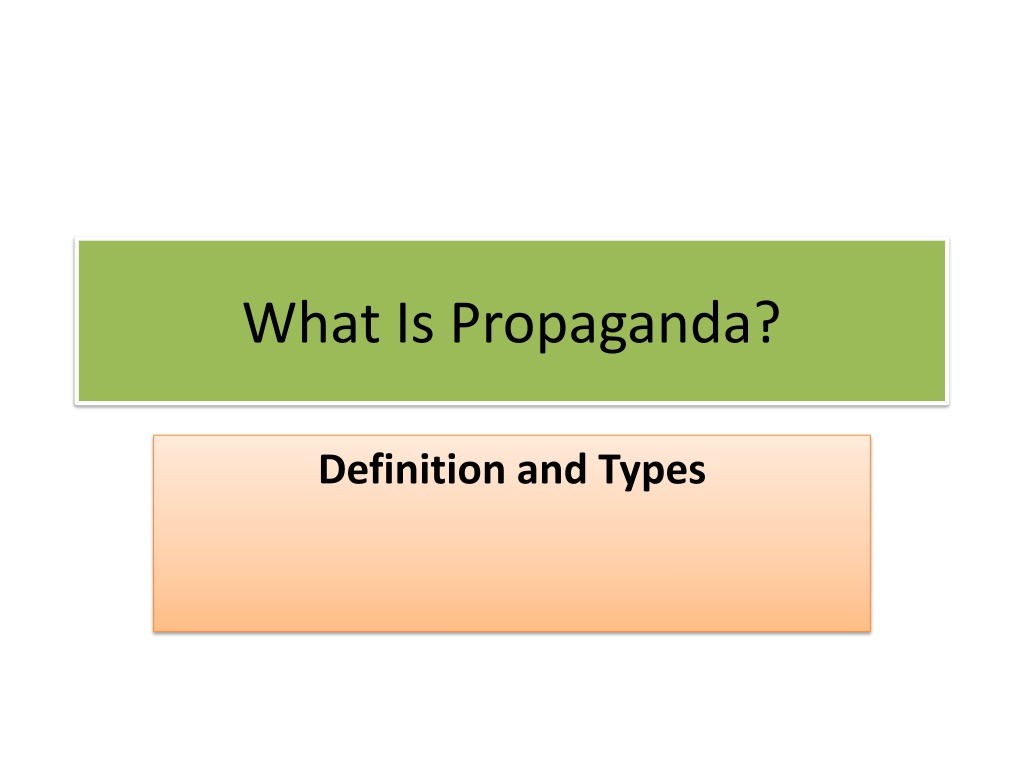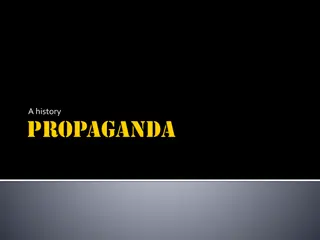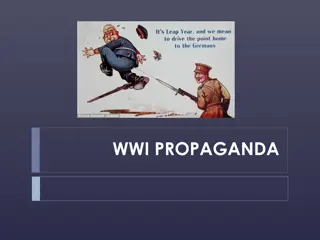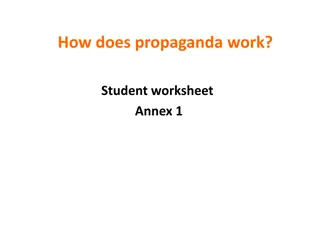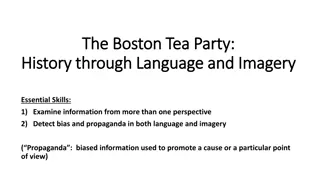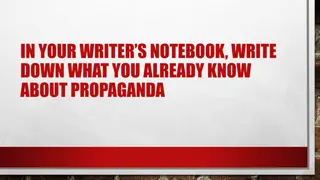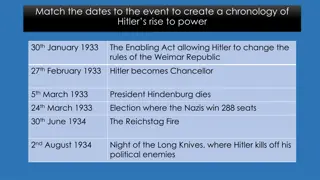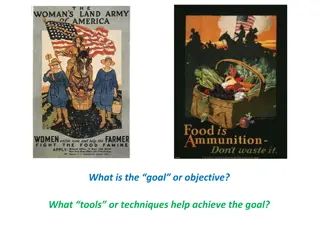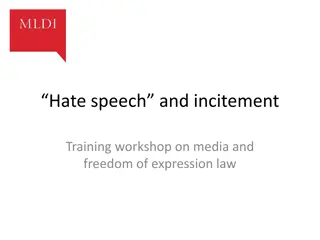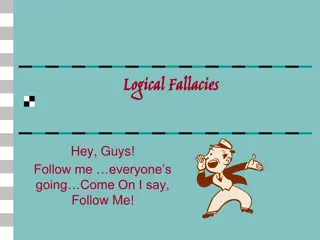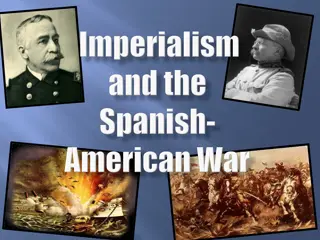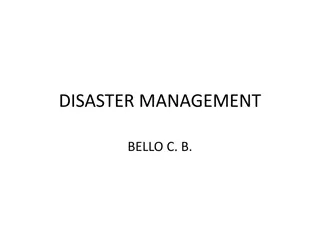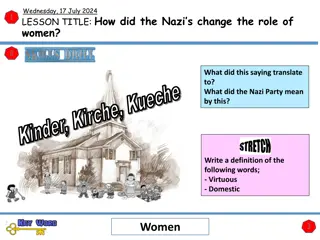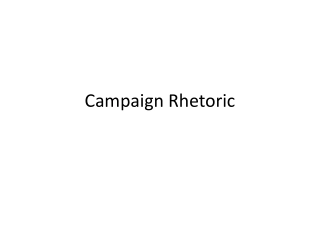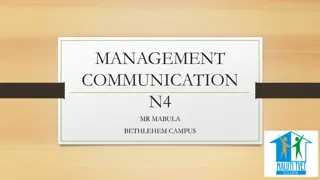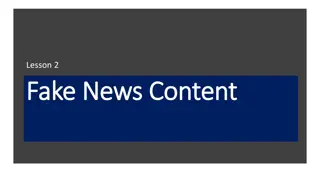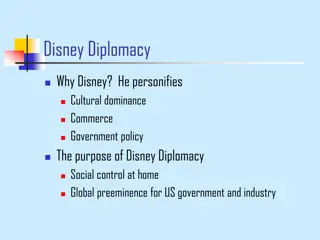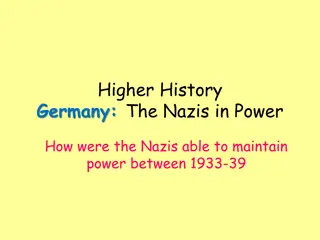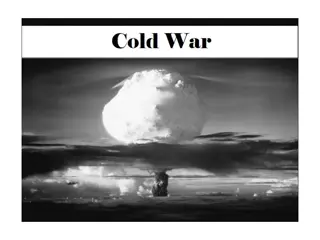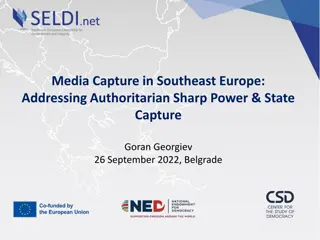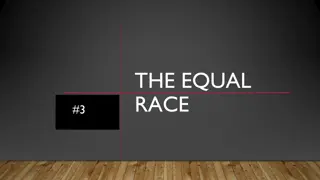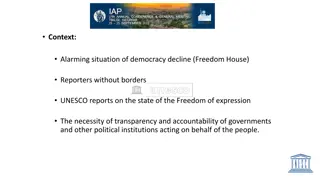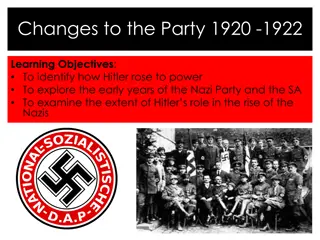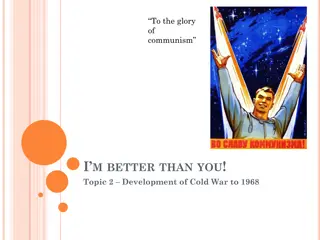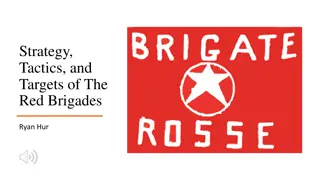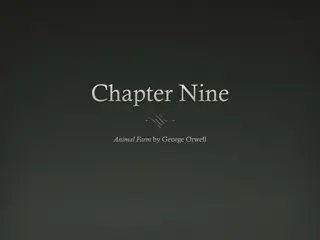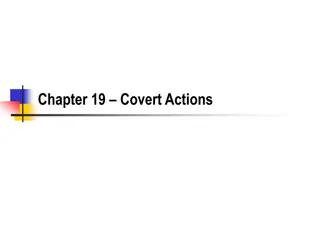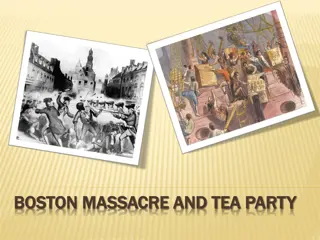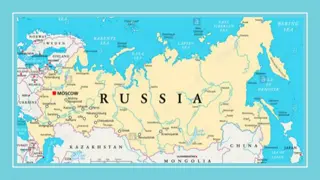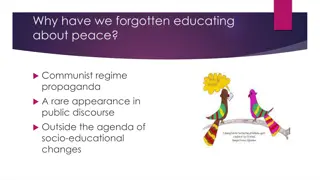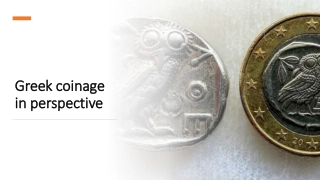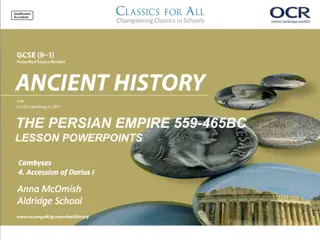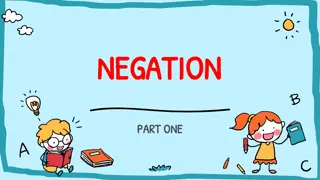Understanding Propaganda: Definition, Examples, and Impact
Propaganda is a form of communication that aims to influence the attitudes of a population towards a cause or position. It can be used to manipulate information selectively, evoke emotional responses, and shape perceptions. This article explores the definition of propaganda, its historical context, different types, and examples, including its role in war propaganda. Understanding propaganda is crucial for recognizing and critically evaluating persuasive messaging in society.
Download Presentation

Please find below an Image/Link to download the presentation.
The content on the website is provided AS IS for your information and personal use only. It may not be sold, licensed, or shared on other websites without obtaining consent from the author. Download presentation by click this link. If you encounter any issues during the download, it is possible that the publisher has removed the file from their server.
E N D
Presentation Transcript
What Is Propaganda? Definition and Types
George Orwell (1903-1950) Arthur Eric Blair
Propaganda is Defined as Propaganda is a form of communication aimed towards influencing the attitude of a population toward some cause or position. Propaganda is information that is not impartial and used primarily to influence an audience and further an agenda, often by presenting facts selectively (perhaps lying by omission) to encourage a particular synthesis, or using loaded messages to produce an emotional rather than a rational response to the information presented. While the term propaganda has acquired a strongly negative connotation by association with its most manipulative and jingoistic examples, propaganda in its original sense was neutral and could refer to uses that were generally positive, such as public health recommendations, signs encouraging citizens to participate in a census or election, or messages encouraging persons to report crimes to law enforcement.
Propaganda in the 20thCentury During the 20th century, the term acquired a thoroughly negative meaning in western countries, representing the intentional dissemination of often false, but certainly "compelling" claims to support or justify political actions or ideologies. This redefinition arose because both the Soviet Union and Germany's government under Hitler admitted explicitly to using respectively, communism and Nazism, in all forms of public expression. As these ideologies were repugnant to liberal western societies, the negative feelings toward them came to be projected into the word "propaganda" itself. propaganda favoring,
Propaganda in the War Propaganda is a powerful weapon in war; it is used to dehumanize and create hatred toward a supposed enemy, either internal or external, by creating a false image in the mind. This can be done by using derogatory or racist terms, avoiding some words or by making allegations of enemy atrocities. Most propaganda wars require the home population to feel the enemy has inflicted an injustice, which may be fictitious or may be based on facts. The home population must also decide that the cause of their nation is just.
Types of propaganda There are three types of Propaganda: White, Black, and Grey. In Orwell s Animal Farm, Black Propaganda is used extensively by both conflicting parties: Mr. Jones and the other farmers on the one hand and the Pigs on the other. This kind of propaganda is mainly used to dehumanize, demonize, and defame the enemy while aggrandizing and overstating one s own actions and achievement.
Propaganda in Animal Farm: Snowball s Windmill and Napoleon s Gun
Song of England and News of the Revolution
The animals who are responsible for the propaganda campaigns
Joseph Goebbles (1897-1945) The German Propaganda Minister
Examples of black Propaganda The Pigs campaign Man irresponsible, Bad-mannered, careless, untrustworthy, self-seeking and abusive. The only good Man is the dead one. Mr. Jones Campaign The animals are tormenting, perpetually fighting each other. They are starving to death. They are practicing cannibalism, and they have their females in common. That is the result of rebelling against the Natural Law. is Evil, Wicked, Exploiter, selfish, unreliable,
